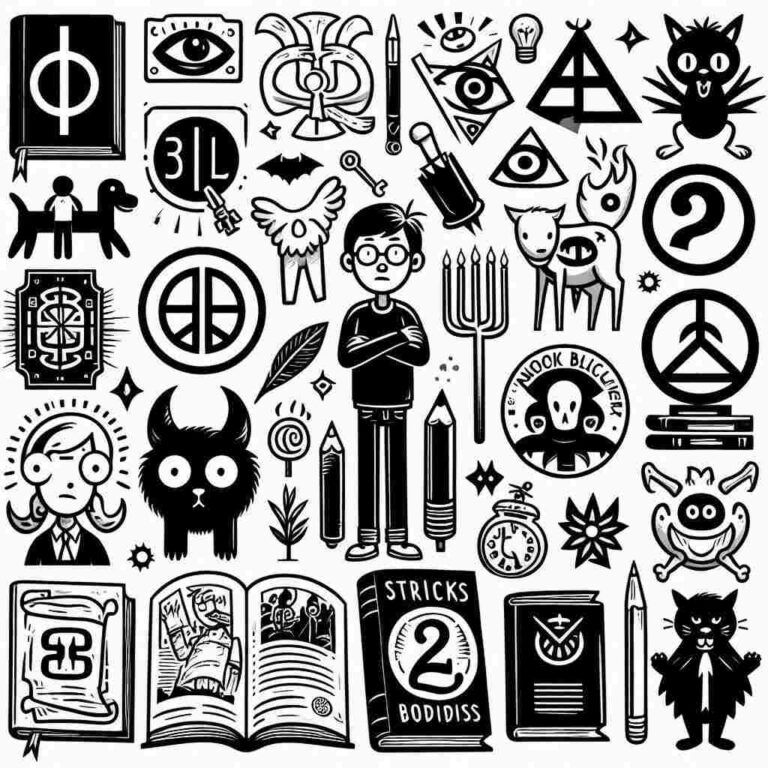Meaningful Quotes from House Arrest
House arrest compresses life. It strips away busywork and sometimes leaves you with one constant: the walls. When the noise falls away, words — short, sharp, honest lines — cut through like light through a crack. That’s why meaningful quotes from house arrest land so hard: they’re distilled experience, a pocket-sized way to name what’s happening. If you’ve ever felt stuck, these lines can act like a compass needle — small, but real.
What “House Arrest” Really Means — Literal and Metaphorical

Literal House Arrest: Legal and Social Boundaries
Literal house arrest is a legal restriction: you stay home, wear monitoring devices, limit visitors, and let daily life shrink to a sanctioned radius. The limits are physical and procedural, but the deeper weight is social — the quiet judgment, the odd pauses in conversation, the rearrangement of roles at home.
Emotional House Arrest: When Your Mind Feels Confined
You can also be under an emotional house arrest: stuck in grief, guilt, anxiety, or a pattern that keeps you from moving forward. That kind of confinement is often less visible — but it still produces the same hunger for language that’s honest and sharp.
Why Quotes Matter When You’re Confined

Quotes as Emotional Lifelines
A short line can act like a hand extended. Why? Because it says, “You’re not the first to feel this,” and sometimes that alone loosens the knot. Quotes condense complex emotion into a single, repeatable sentence you can carry in your pocket and replay when things feel loud.
Quotes for Perspective and Reframing
Quotes don’t just empathize — they reframe. A sentence that shifts “I’m trapped” to “I am waiting” or “I am learning” can change what you notice, which shapes how you act.
Famous, Short, and Meaningful Quotes from Actual House Arrests

Below are a few short, credited lines that capture real, lived constraint — legal, political, and fictional. These are small slices of larger stories, but they’re useful because they get to a practical truth quickly.
Aung San Suu Kyi: Work and Purpose Under Constraint
“You have a great many things to do when you are under house arrest.”
It’s a paradox: restriction often forces focus. Instead of endless travel or noise, work becomes more intentional — writing, reading, connecting. That sentence reminds us that agency can survive even in small spaces.
Julian Assange: The Physical and Psychological Tethers
Assange once described wearing “an electronic manacle” as part of his house arrest, a tiny but constant reminder of limitation that bleeds into everyday life. You don’t need a long line to feel the chill — those few words make the equipment and the emotional cost vivid.
Stephen King: A Metaphor That Fits Many Situations
“Story is honorable and trustworthy; plot is shifty, and best kept under house arrest.”
King’s wry line flips house arrest into a storytelling tool: keep the plot on a leash and let character do the work. It’s a reminder that constraints can sharpen focus rather than dull it.
K.A. Holt (Fiction): Small Truths from a Homebound Life
“Don’t you think it’s OK to cry uncle sometimes? To ask for help?”
That’s the kind of quote that makes permission for human fragility feel like a radical act.
A Curated Collection: 20 Short Meaningful Quotes for Someone Under House Arrest
(Quick list you can pin, text, or screenshot — all lines under 15 words, ready to use.)
- “You have a great many things to do when you are under house arrest.”
- “An electronic manacle is a quiet teacher of patience.”
- “Don’t you think it’s OK to cry uncle sometimes?”
- “Walls are teachers if you let them be.”
- “Isolation doesn’t erase you; it makes you smaller to examine.”
- “Small tasks, steady hands: freedom is in the little things.”
- “Turn the room into a classroom, not a cell.”
- “Boredom is the raw material of invention.”
- “Listen to the quiet — it’s telling you what you need.”
- “Keep the story honest, even if the plot is stuck.”
- “A locked door is a reminder, not a definition.”
- “Stillness is a craft; it takes practice.”
- “Change the angle, change the room.”
- “Time moves differently when you stop chasing it.”
- “Every day is a blank wall — paint something on it.”
- “A quiet day is still a day lived.”
- “A window can be a promise or a prison — you choose.”
- “The slow days teach the sharpest lessons.”
- “Freedom is a muscle; use what you can.”
- “When space is small, your mind must grow bigger.”
How to Read and Use These Quotes Right Now
Pick one line and repeat it for three mornings. Write it at the top of a page and freewrite for five minutes. Say it aloud when you feel the walls closing in. The point isn’t to memorize; it’s to activate a cue that invites a small shift.
Original Quotes You Can Use or Share
Here are ten original, shareable lines crafted to fit the emotional and practical rhythms of confinement:
- “Walls teach vocabulary for patience.”
- “Confinement is a chapter, not the whole book.”
- “A tiny ritual anchors a wandering day.”
- “Make one corner sacred to what heals you.”
- “Silence is an uncut diamond; it needs a hand to polish it.”
- “Freedom shows up in textures — a cup, a page, a friend’s voice.”
- “The smallest action is a vote for the future.”
- “When the radius shrinks, notice what grows.”
- “Turn a window into a calendar, not a trap.”
- “Ask for help early; it saves more than time.”
How to Turn a Quote Into a Daily Practice
Journaling Prompts Based on a Single Quote
Take one quote each week and build a 7-day micro-practice:
- Day 1: Write what the quote means to you in one sentence.
- Day 2: List three ways the quote could change your mood.
- Day 3: Do one small action inspired by the quote.
- Day 4–7: Track small results and tighten the action.
Simple Rituals: Notes on the Wall, Phone Reminders, Micro-Tasks
Here’s a practical trio: place the quote on your mirror, set it as your phone lock-screen, and pick one tiny task tied to that quote. Rituals turn insight into habit.
How to Craft Your Own “House Arrest” Quote (Step-by-Step)
Step 1 — Name the Feeling
Write one word: “restless,” “frightened,” “bored.” Keep it raw.
Step 2 — Find the Small Image or Object
Pick an object in the room (window, mug, sock). Pair it with the emotion.
Step 3 — Pair Feeling + Image + Tiny Action
Format: [Emotion] + [Image] + [Action]. Example: “Restless + window + breathe.” Turn that into a line: “When I am restless, I breathe toward the window.” Shorten and tweak until it sings.
That’s it. Constraints breed creativity — even with language.
Using Quotes Online: SEO & Social Tips for Sharing Your List
If you want this piece to find readers:
- Use the exact phrase “meaningful quotes from house arrest” in the title, meta description, and early in the article.
- Create a shareable graphic for each quote.
- Publish as a list and use FAQ sections to boost visibility.
- Encourage engagement: ask readers which quote resonated most and feature replies in updates.
Conclusion: Carry the Quote, Don’t Let It Carry You
Quotes are tools, not anchors. The right line at the right time can be a nudge, a permission slip, or a mental scaffold. When house arrest — literal or metaphorical — narrows your world, let words widen it. Keep them short, make them practical, and turn them into tiny rituals that reframe one day at a time.
FAQs
Q1: Can short quotes really help someone under literal house arrest?
Yes. Short quotes act like cognitive cues — they’re easy to recall and can trigger calmer responses or a helpful reframe in high-stress moments.
Q2: Are there famous people who wrote memorable lines while confined?
Yes — political figures, writers, and public personalities have produced memorable lines about confinement.
Q3: How do I avoid sounding cheesy when I share quotes?
Pick quotes that feel honest rather than grandiose, and pair them with a small personal note: “This helped me because…” Authenticity beats cleverness.
Q4: Should I quote political figures if I want broad appeal?
Short, human lines tend to cross political divides better than polemics. If you use political quotes, include context and avoid inflammatory framing.
Q5: Can I make money from a list of quotes?
Indirectly. Good SEO, shareable graphics, and affiliate or merchandising strategies (prints, mugs) can monetize a popular list.
Q6: What’s a fast way to craft my own quote?
Name the feeling, pick an image in the room, and connect it to one small action. Edit until it’s under 12 words.
Q7: How often should I repeat a quote as a ritual?
Daily for 7–14 days is a good experiment window. See what shifts.
Q8: Are fictional quotes useful for real-life confinement?
Absolutely. Fiction often names interior life in sharp ways that feel real and helpful. Use them as mirrors, not manuals.
Q9: Can quotes help after house arrest ends?
Yes — they can become anchors for what you learned during confinement and reminders of lessons you want to keep.
Q10: Where can I find more short, credited quotes about house arrest?
Look at books, interviews, and memoirs where people describe life in confinement. Focus on lines that capture universal truths in few words.





